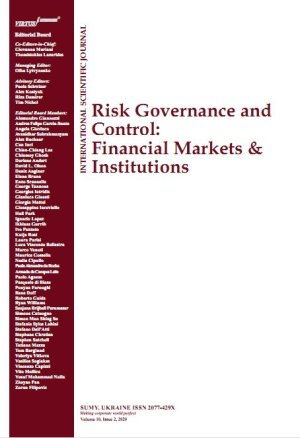
FINANCIAL DEEPENING AND ECONOMIC GROWTH IN NIGERIA (1981-2012): A MANAGERIAL ECONOMIC PERSPECTIVE
Download This ArticleAbstract
The objective of this study is to determine the impact of financial deepening on economic growth in Nigeria. The supply leading hypothesis was adopted as the theoretical framework of the study. Data for analysis was for the period 1981-2012 obtained from the Central Bank of Nigeria Statistical Bulletin. The explanatory variables were logged values of broad money supply/GDP and Credit to the private sector/GDP. The times series data were tested for stationarity using the ADF unit root tests of stationarity and were found to be stationary at first difference. The Engle-Granger Cointegration technique and Error correction model were used for the test of long run relationship. Findings reveal that money supply (MS) is positive and weakly significant in determining economic growth. However, credit to the private sector was negative and not significant in the short run. The speed of adjustment of the ECM is 25.51%. This implies that if there are short run fluctuations, GDP will converge to its long run equilibrium path at a speed of about 25.51% in each period .The conclusion is that financial deepening does not have the desired impact on economic growth in Nigeria. Hence, there is a need for increase and improvement in access to private credit to enhance economic growth and investment.
Keywords: Economic Growth, Economic Perspective, Financial Deepening
How to cite this paper: Igwe, A., Edeh, C., & Ukpere, W. (2014). Financial deepening and economic growth in nigeria (1981-2012): A managerial economic perspective. Risk governance & control: financial markets & institutions, 4(4-1), 120-131. https://doi.org/10.22495/rgcv4i4c1art6



















